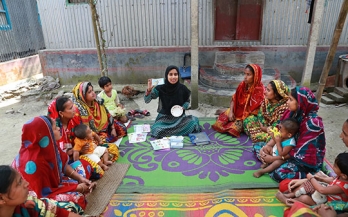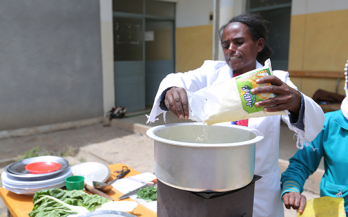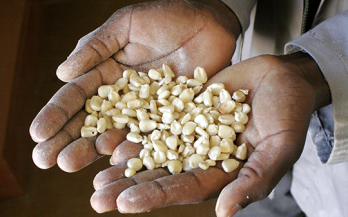This paper focuses on programmatic experiences related to micronutrient powders delivery, social and behaviour change communication, and training. Methods included a review of published and grey literature, interviews with key informants, and deliberations throughout the consultation process.
The objectives of this study were to identify and summarize the most recent micronutrient powders (MNP) programme experiences and lessons learned for operationalizing MNP for young children and prioritize an implementation research agenda.
More than 80 countries fortify flour, yet the public health impact of this intervention on iron and anemia outcomes has not been reviewed. The objective of this systematic review was to review published and gray literature pertaining to the impact of flour fortification on iron and anemia.
Universal salt iodization is the main global strategy to eliminate iodine deficiency. The purpose of this study was to develop program guidance around iodine in bouillon, iodine retention in 13 bouillon brands commercially available in Senegal was measured over 6 months.
Rice production is invariably related to food insecurity which translates to the food shortage or lean periods. The objective of this study was to compare the effect of two major rice harvest seasons and the post‐aus rice harvest period on household food insecurity along with the contribution of relevant household characteristics.
The objective of this study was to assess the effect of sodium iron ethylenediaminetetraacetate (NaFeEDTA)-fortified soy sauce on anemia prevalence in the Chinese population.
The purpose of the study was to examine whether access to an at-scale, group-based parenting education program (“Educación Inicial”) had differential effects on parenting behaviors and child cognitive development according to mother's age at the birth of her first child, with a focus on adolescent mothers in rural Mexico.
The objective of this study was to assess whether improving iron intake with double fortified salt would improve food intake, resulting in higher energy, nutrient intakes, and weight indicators of female tea plantation workers.
The objective of this study was to describe the determinants of aflatoxins exposure, using urinary aflatoxin M1 biomarkers and data generated by the Sanitation Hygiene Infant Nutrition Efficacy (SHINE) trial for rural Zimbabwean women in early pregnancy.
The state of Gujarat had introduced Extruded Fortified Blended Food as take-home ration for children 6–35 months of age. The study aimed to understand awareness, availability, and consumption pattern of Balbhog.










